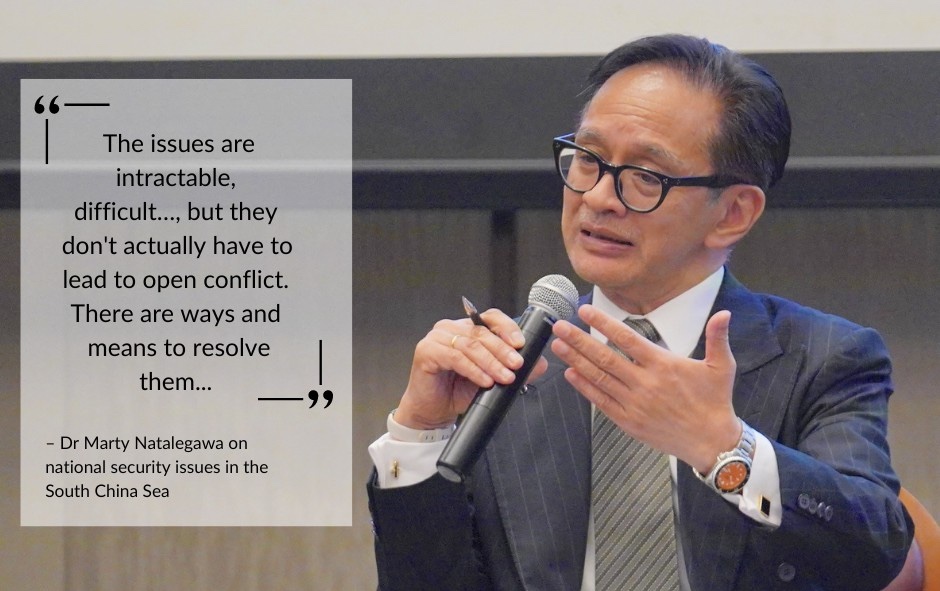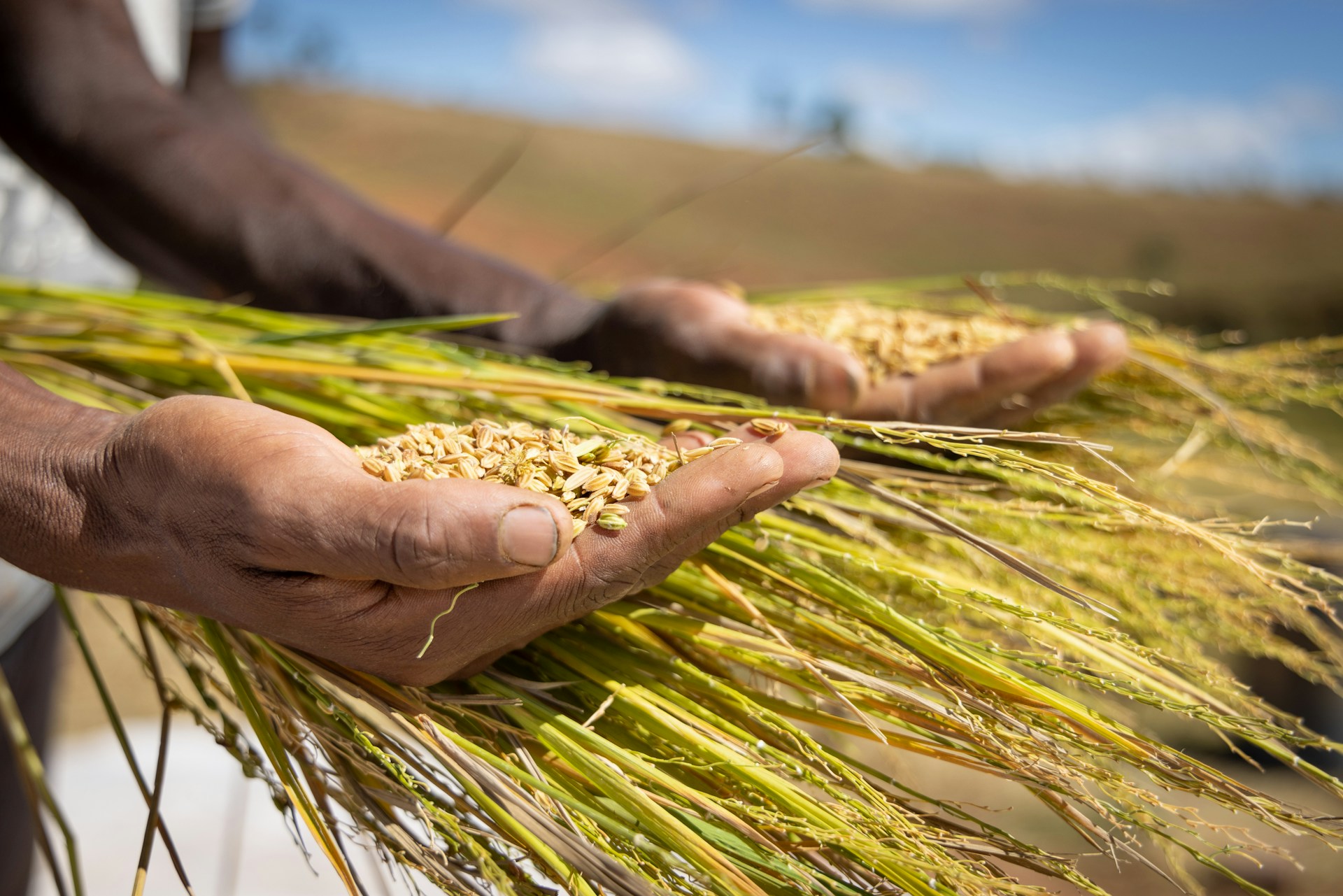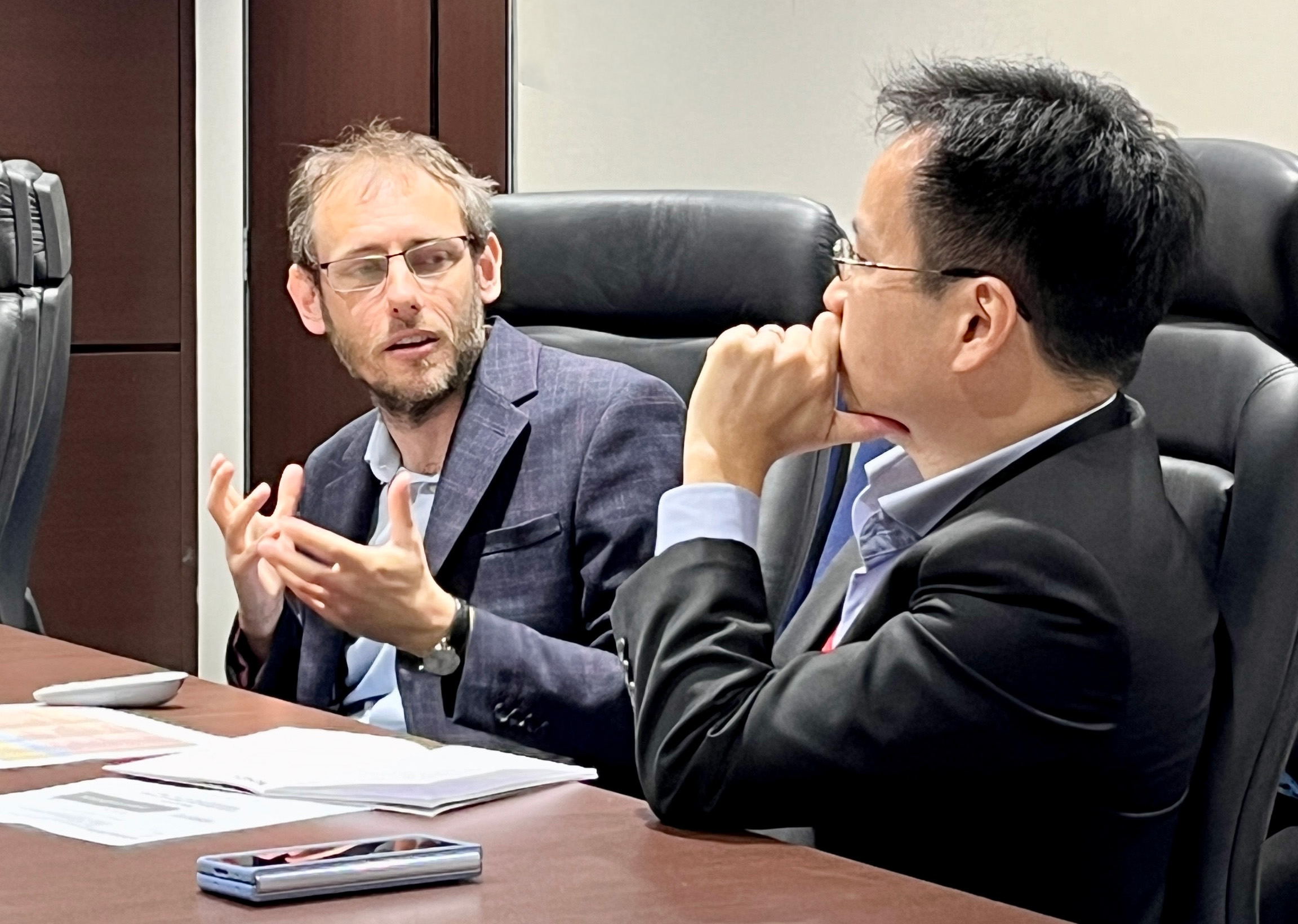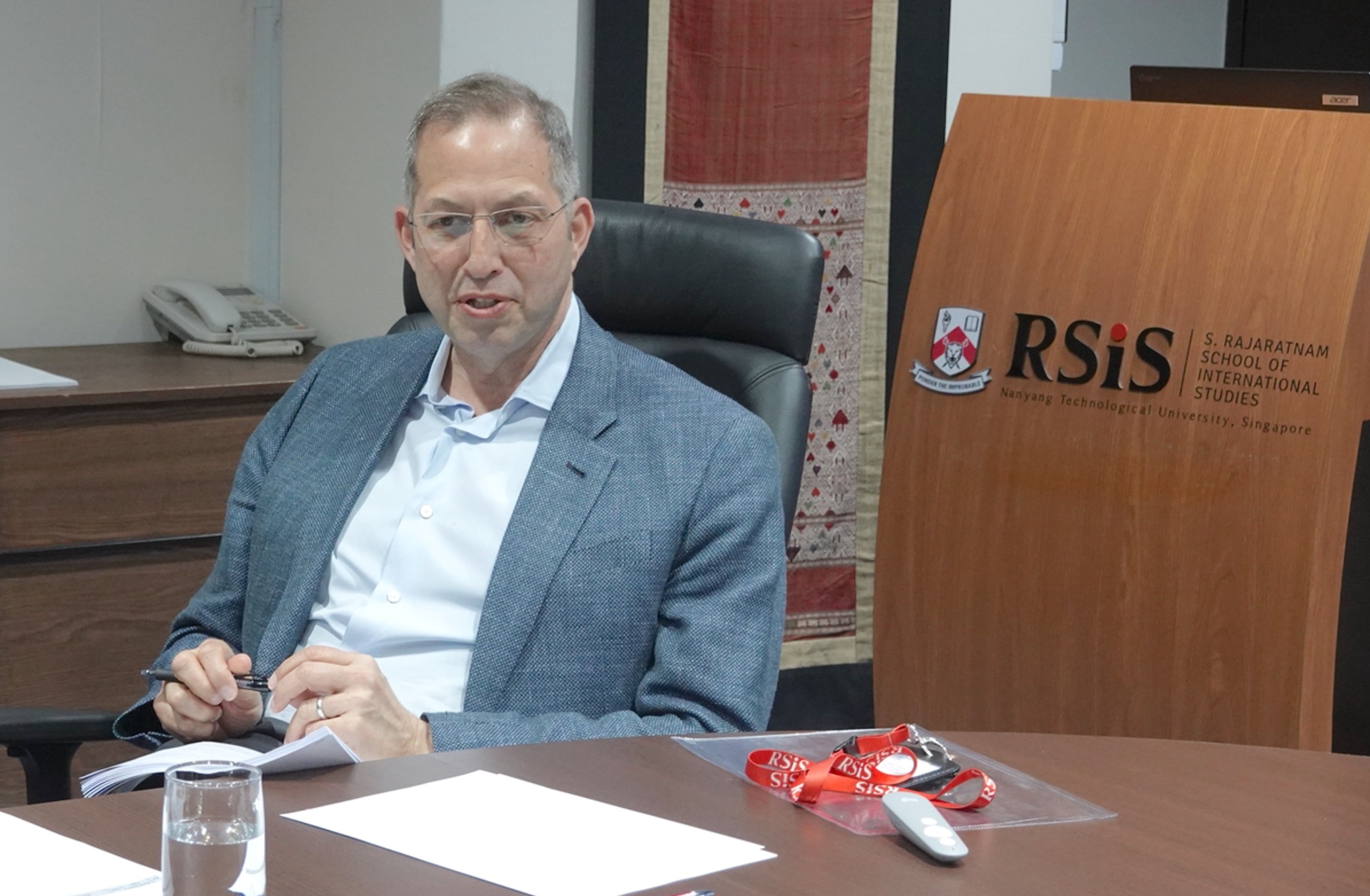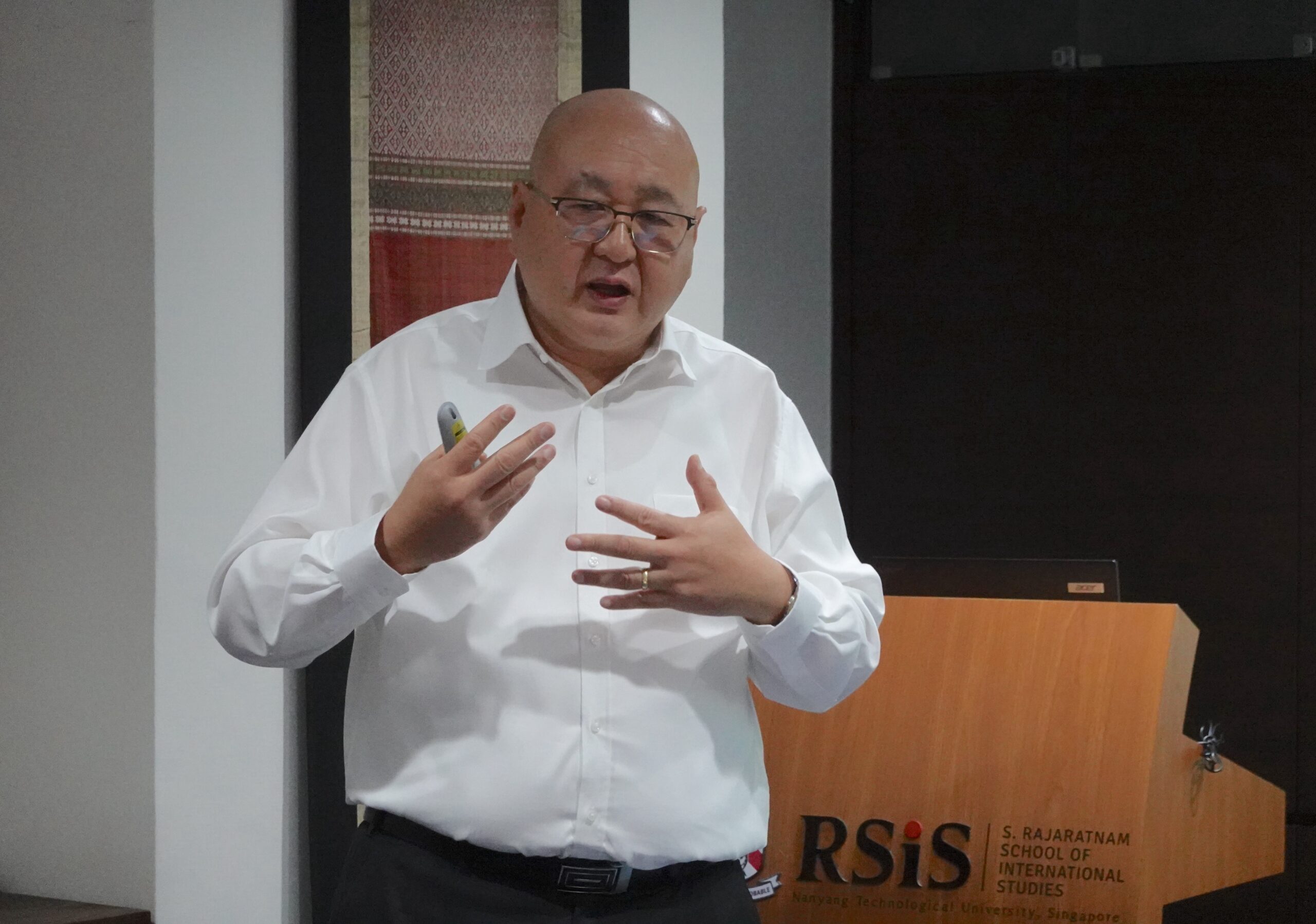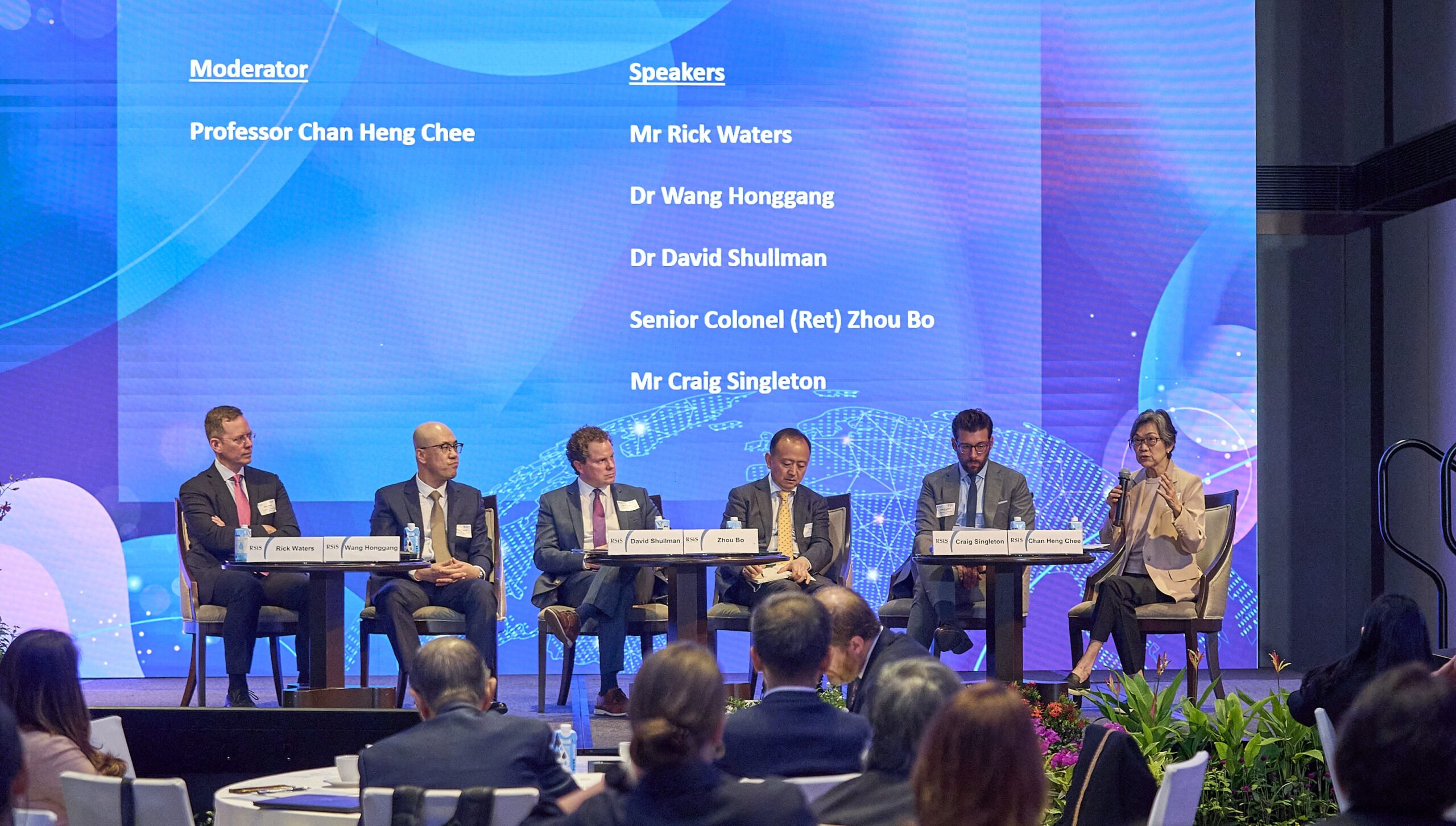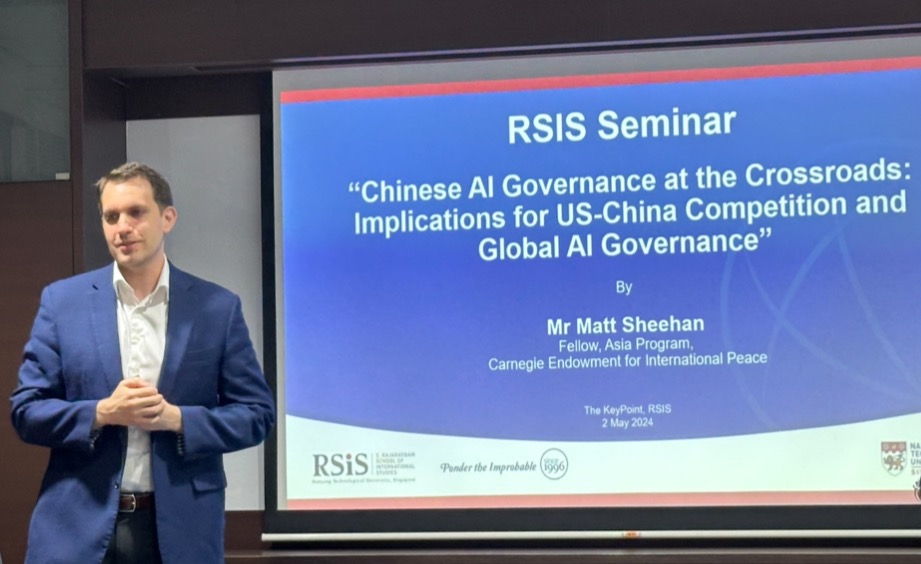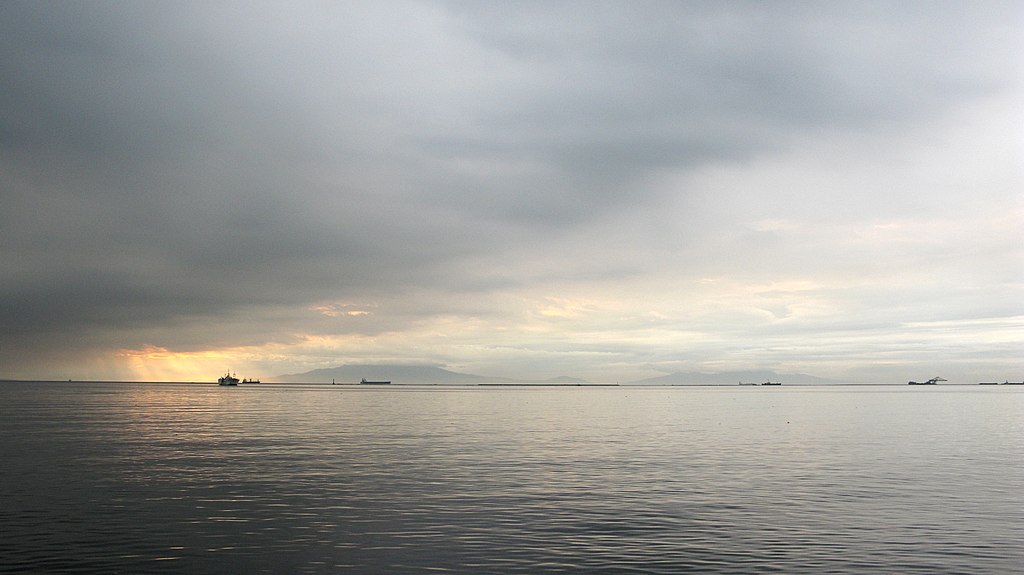
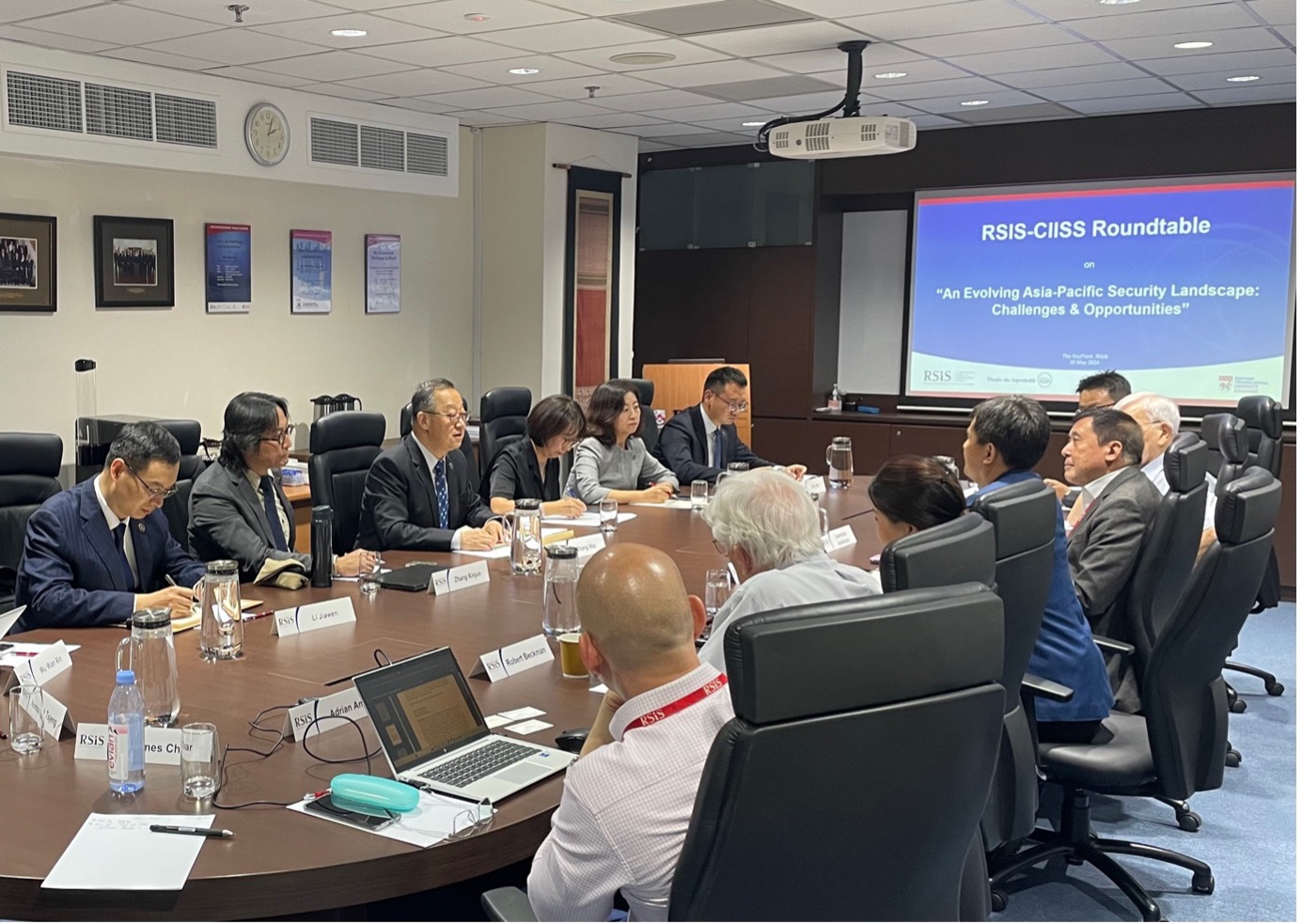
RSIS held a roundtable discussion on 30 May 2024 titled “An Evolving Asia-Pacific Security Landscape: Challenges & Opportunities”, with the China Institute for International Strategic Studies (CIISS). During the discussion, CIISS delegates shared their perspectives on issues related to South China Sea (SCS), what it would mean for a possible second Trump administration, as well as examine ASEAN-China relations for further cooperation.
The head of the CIISS delegation, Senior Colonel (Retd) Zhang Wei, reiterated that the current regional security architecture required major countries and its neighbours to find solutions amidst challenges, while taking into account the importance of peace and harmony. All states shared a common destiny, and it was crucial to have cordial relationships with one another, built upon values like mutual trust and coordination. He emphasised that the idea of “great power politics” tended to focus on competition, which was not constructive for resolving conflicts in this era of globalisation.
Another CIISS delegate, Professor Zhang Xinjun pointed out that everyone had the responsibility to resolve and manage disputes in the SCS. However, it was important for China to maintain its sovereignty and national interests while navigating possible solutions, outlining that other stakeholders not involved in the conflicts should not play a part in causing further escalation of tensions in the region.
Senior Colonel (Retd) Zhang also acknowledged the importance of China maintaining a positive relationship with ASEAN and Southeast Asian nations. Political powers, economic changes, and conflicts within the regional security landscape had created more opportunities for development and cooperation while bringing challenges.
The roundtable discussion concluded with a Q&A exchange between CIISS delegates and RSIS colleagues. Some questions raised included topics on possible US policy direction against China, reactions from neighbouring countries on the interactions between US and China, as well as ASEAN’s preparedness while facing these uncertainties.






